Iñaki San Vicente
Give your Text Representation Models some Love: the Case for Basque
Apr 02, 2020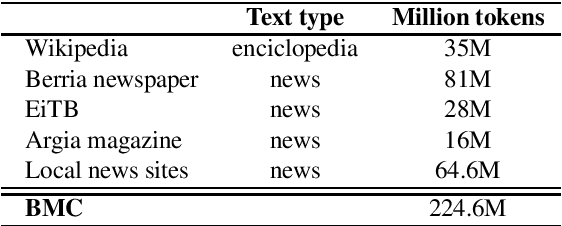
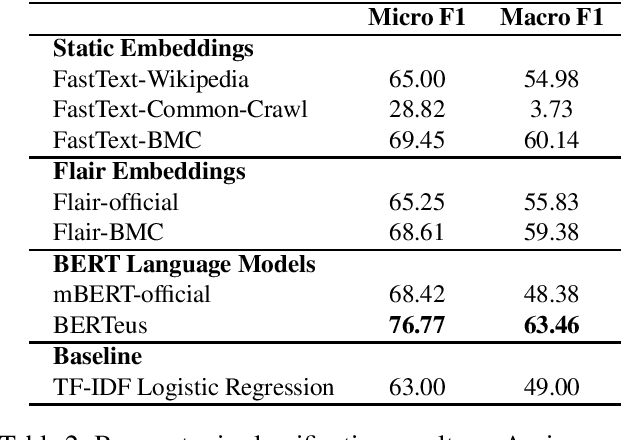
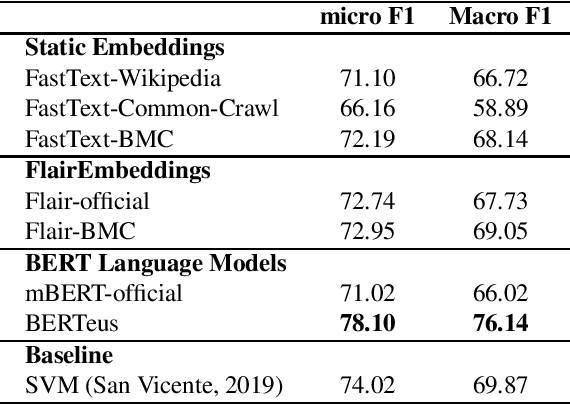
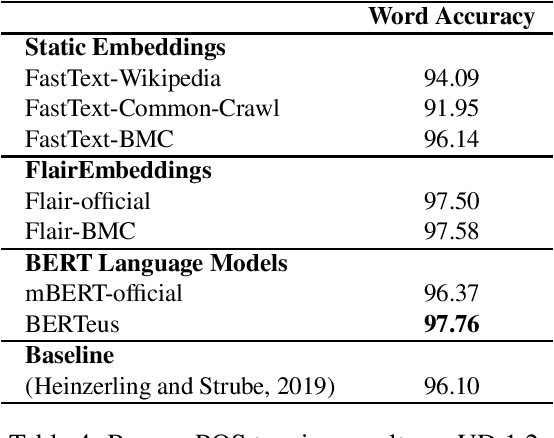
Abstract:Word embeddings and pre-trained language models allow to build rich representations of text and have enabled improvements across most NLP tasks. Unfortunately they are very expensive to train, and many small companies and research groups tend to use models that have been pre-trained and made available by third parties, rather than building their own. This is suboptimal as, for many languages, the models have been trained on smaller (or lower quality) corpora. In addition, monolingual pre-trained models for non-English languages are not always available. At best, models for those languages are included in multilingual versions, where each language shares the quota of substrings and parameters with the rest of the languages. This is particularly true for smaller languages such as Basque. In this paper we show that a number of monolingual models (FastText word embeddings, FLAIR and BERT language models) trained with larger Basque corpora produce much better results than publicly available versions in downstream NLP tasks, including topic classification, sentiment classification, PoS tagging and NER. This work sets a new state-of-the-art in those tasks for Basque. All benchmarks and models used in this work are publicly available.
Talaia: a Real time Monitor of Social Media and Digital Press
Sep 28, 2018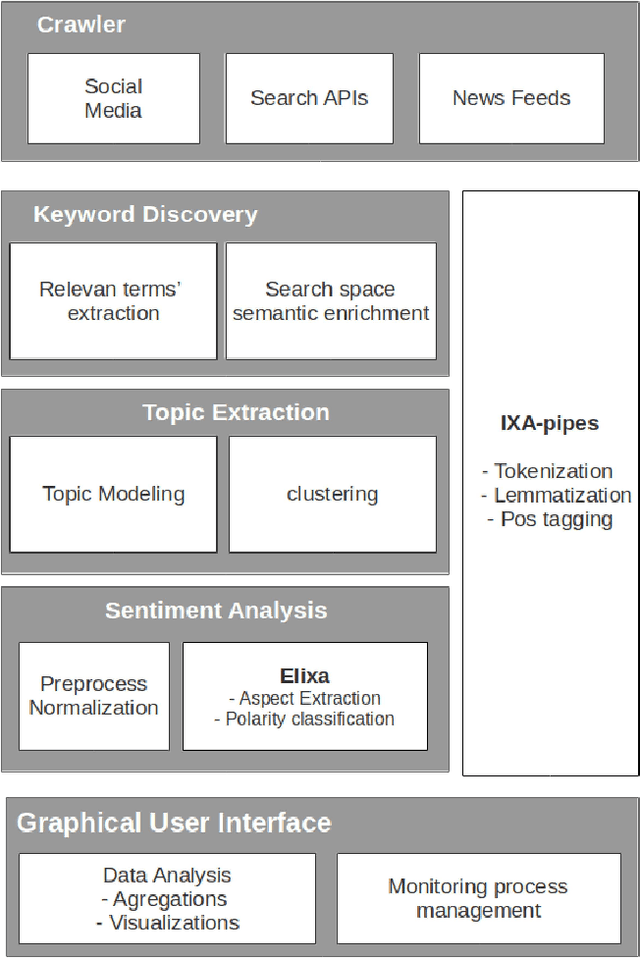
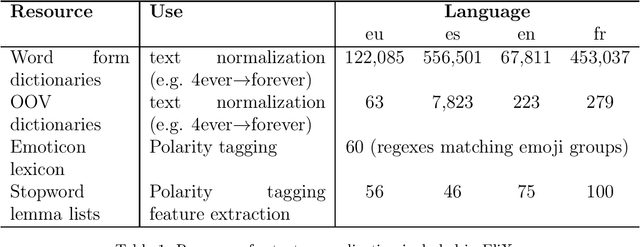
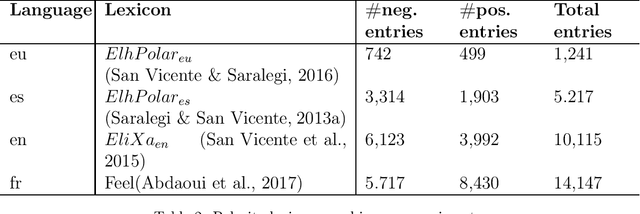

Abstract:Talaia is a platform for monitoring social media and digital press. A configurable crawler gathers content with respect to user defined domains or topics. Crawled data is processed by means of IXA-pipes NLP chain and EliXa sentiment analysis system. A Django powered interface provides data visualization to provide the user analysis of the data. This paper presents the architecture of the system and describes in detail the different components of the system. To prove the validity of the approach, two real use cases are accounted for, one in the cultural domain and one in the political domain. Evaluation for the sentiment analysis task in both scenarios is also provided, showing the capacity for domain adaptation.
EliXa: A Modular and Flexible ABSA Platform
Feb 07, 2017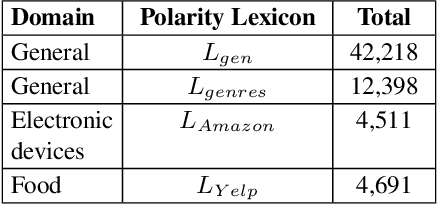
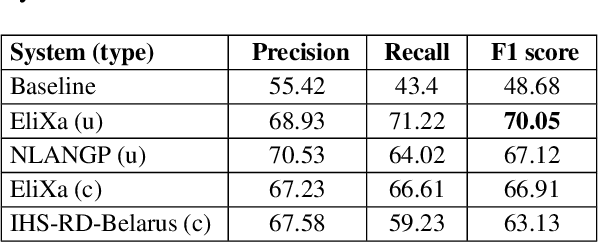
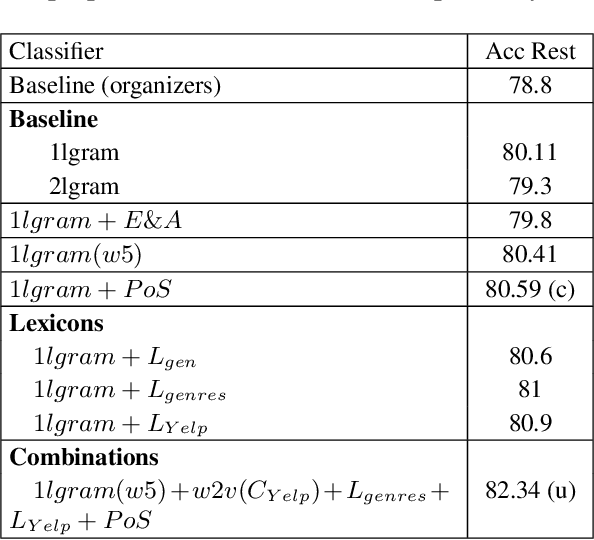
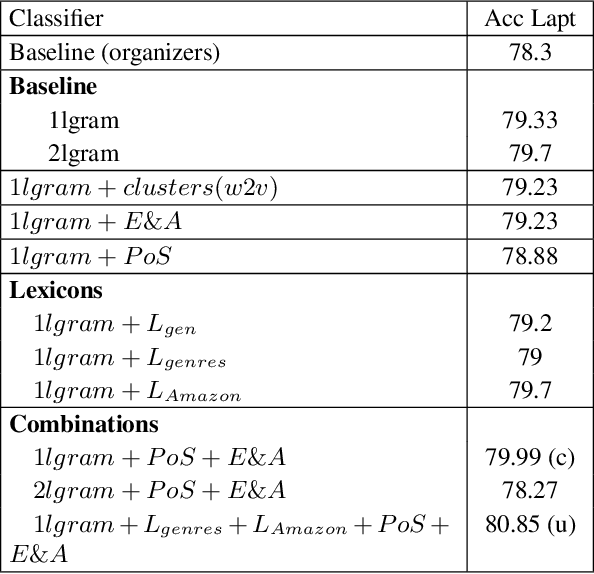
Abstract:This paper presents a supervised Aspect Based Sentiment Analysis (ABSA) system. Our aim is to develop a modular platform which allows to easily conduct experiments by replacing the modules or adding new features. We obtain the best result in the Opinion Target Extraction (OTE) task (slot 2) using an off-the-shelf sequence labeler. The target polarity classification (slot 3) is addressed by means of a multiclass SVM algorithm which includes lexical based features such as the polarity values obtained from domain and open polarity lexicons. The system obtains accuracies of 0.70 and 0.73 for the restaurant and laptop domain respectively, and performs second best in the out-of-domain hotel, achieving an accuracy of 0.80.
* 5 pages, conference
Q-WordNet PPV: Simple, Robust and Unsupervised Generation of Polarity Lexicons for Multiple Languages
Feb 06, 2017

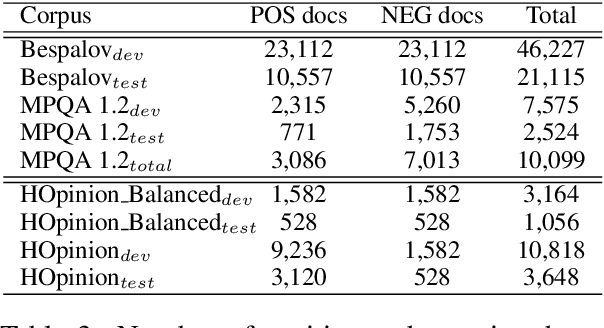

Abstract:This paper presents a simple, robust and (almost) unsupervised dictionary-based method, qwn-ppv (Q-WordNet as Personalized PageRanking Vector) to automatically generate polarity lexicons. We show that qwn-ppv outperforms other automatically generated lexicons for the four extrinsic evaluations presented here. It also shows very competitive and robust results with respect to manually annotated ones. Results suggest that no single lexicon is best for every task and dataset and that the intrinsic evaluation of polarity lexicons is not a good performance indicator on a Sentiment Analysis task. The qwn-ppv method allows to easily create quality polarity lexicons whenever no domain-based annotated corpora are available for a given language.
* 8 pages plus 2 pages of references
 Add to Chrome
Add to Chrome Add to Firefox
Add to Firefox Add to Edge
Add to Edge